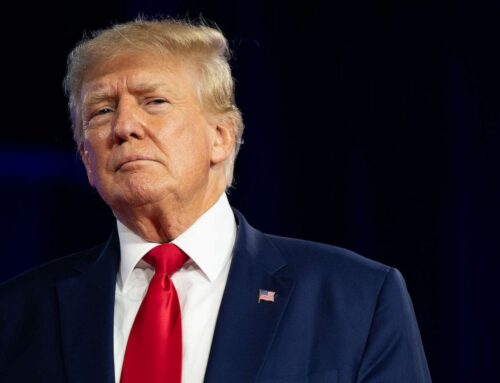In 2011, the Liberal Party suffered their worst ever federal election result, dropping to third place with a mere 34 seats. Never before had the one-time Natural Governing Party been relegated to third party status, so Michael Ignatieff stepped down as leader the day after the election, Bob Rae became the interim leader, and the search for the party’s next saviour was underway. After various fits and starts, the party brass announced the leadership rules last Spring and prohibited the interim leader from running for the permanent leader’s job, and to the surprise of most political observers Rae chose to remain the interim leader and forego the chance to become the leader of the Liberal Party. Immediately the attention turned to Justin Trudeau, son of former prime minister Pierre Trudeau, who despite his youth (41) and inexperience (five years as an opposition MP) – or because of those things – vaulted to front-runner status, scaring away most other top-tier Liberals.
The party will chose a new leader at their convention in Ottawa on April 14 and anyone who is a paid up member or newly signed up supporter by March 3 is allowed to vote. The voting will take place before and at the convention, including over the internet, in one preferential ballot.
There are nine candidates for the leadership including current MPs Justin Trudeau, Marc Garneau, and Joyce Murray, former MPs Martin Cauchon and Martha Hall Findlay, academic and constitutional lawyer Deborah Coyne, and David Bertschi, Karen McCrimmon, and George Takach. Trudeau seems like the prohibitive favourite.
If you take the average of the Forum and Leger polls of Liberal supporters conducted in December and January, Trudeau has the support of more than six in ten people who back the Grits, while Garneau is averaging 14 per cent and has polled as high as 20 per cent. Far behind Hall Findlay consistently shows with three per cent. Cauchon, whose name was included in only a mid-January poll after his late entry into the race, has three per cent, and the rest of the field is at one per cent or less. It would take a major stumble by Trudeau to thwart his bid to lead the party his father led from 1968 through 1984.
Trudeau is not only the prohibitive front-runner but the most outspokenly pro-abortion and pro-gay candidate of the nine. He said last year that he would consider supporting Quebec separation if Canada was “going against abortion, and we were going against gay marriage.” During his French radio interview on Feb. 12, 2012, Trudeau said explained “if at a certain point, I believe that Canada was really the Canada of Stephen Harper” and reversed course on the abortion license and same-sex “marriage” then he “would think about wanting to make Quebec a country.”
Trudeau would later walk back from his comments saying that Canada needs Quebec to maintain “progressive values.”
At the time, Campaign Life Coalition national president Jim Hughes said Trudeau’s comments were “outrageous” and illustrated a pro-abortion extremism in “setting out the defence of killing innocent unborn babies as one of two conditions for breaking up the country.”
The other condition, same-sex “marriage” was made law in Canada due to the efforts of another candidate, former justice minister Martin Cauchon. The book Gay Marriage: The Story of a Canadian Social Revolution paints Cauchon as instrumental in getting the gay marriage bill passed in the House of Commons, reporting that the then justice minister said he would resign if it failed, saying “for me it was such an important, fundamental question.” In the same book, Jean Chretien advisor Paul Genest called Cauchon “the force” behind redefining marriage.
As justice minister from 2002-2003, Cauchon also argued within cabinet for the decriminalization of marijuana and he opposed all pro-life motions presented in the House of Commons during his tenure from 1993 through 2004.
Campaign Life Coalition rates Joyce Murray (Vancouver Quadra) as not supportable because she has voted the wrong way on four of five bills or motions during her time in Parliament. She voted against M-312 in 2012 (which called for an inquiry into the Criminal Code definition of human life before birth) and C-510 in 2010 (which would have protected from being coerced into having an abortion), and supported C-389, the so-called bathroom bill that would have extended special rights to people who self-identify as transsexual or transgender, and the Bob Rae motion that would have added abortion and contraception to Stephen Harper’s 2010 G8 maternal and child health initiative. Murray’s only pro-life vote to oppose C-384 a private member’s bill in 2010 that would have legalized euthanasia and doctor-assisted suicide.
Murray also supports cooperating with the NDP and Green Party in order to defeat the Harper government.

Martha Hall Findlay touts the line that Liberals should be fiscally responsible and socially progressive.
When Hall Findlay was an MP, she was deemed unsupportable because of votes for the bathroom bill, euthanasia, and Rae’s maternal health motion, and against C-510. In the aftermath of the May 2011 election, Hall Findlay said the Liberals must be “fiscally responsible and socially progressive,” and highlighted the “mixed signals” the Liberals sent when three of their MPs voted against Rae’s motion that would have required the government to “include the full range of family planning, sexual and reproductive health options, including contraception,” in its maternal health initiative for the developing world. In an article for Policy Options she lamented that while “For many years, reproductive choice for women was a fundamental tenet of the Liberal Party,” but now the position is “as clear as mud.”
CLC’s Jim Hughes told The Interim that Hall Findlay’s assertion is incorrect, pointing to CLC analyses that showed in the 1980s and 1990s, one-fifth to one-quarter of the Liberal caucus was pro-life as indicated through their answers to CLC’s candidate questionnaire and voting records. The pro-life contingent is now about 10 per cent of the caucus according to CLC records. “Contrary to what Martha Hall Findlay says,” Hughes said, “the Liberal Party is becoming less pro-life.” Hughes noted that in the 1990 leadership race there were two pro-life candidates, Tom Wappel and John Nunziata, but that not one pro-life Liberal has run for the leadership since then.
Garneau has also been deemed unsupportable by CLC, having supported Rae’s motion and the bathroom bill and opposed M-312 and C-510.
Coyne advised Clyde Wells during the Meech Lake Accord constitutional debates and taught constitutional law at the University of Toronto, but is most famous for being the mother of Sarah, Pierre Trudeau’s out-of-wedlock daughter. That makes Coyne the mother of Justin Trudeau’s half-sister. Campaign Life Coalition does not have information about the positions of Coyne, Bertschi, McCrimmon, or Takach on life and family issues. The Interim’s calls to the candidate’s campaigns were not returned by press time.
Hughes expressed dismay at the slim offerings in the crowded field of contenders. “You would think that with nine people running for the leadership, one of them would be reaching out to pro-life and pro-family Canadians and reach out to a new group of potential Liberal supporters.”





